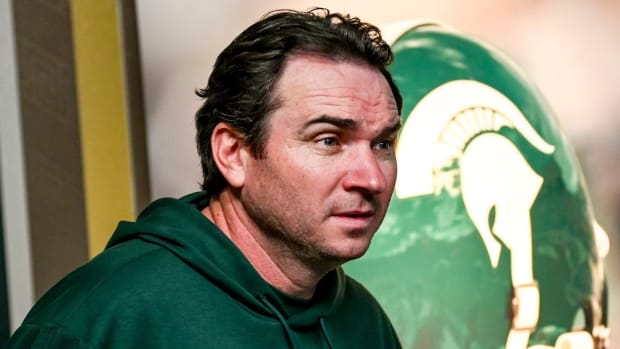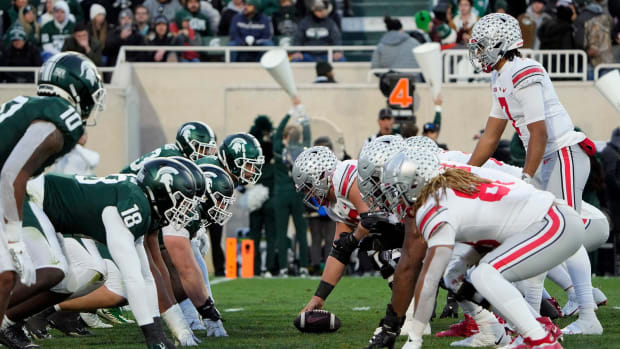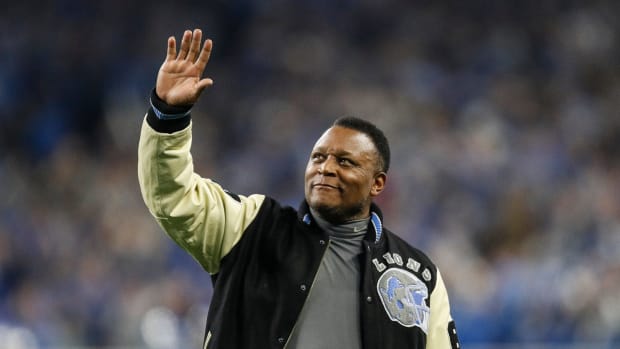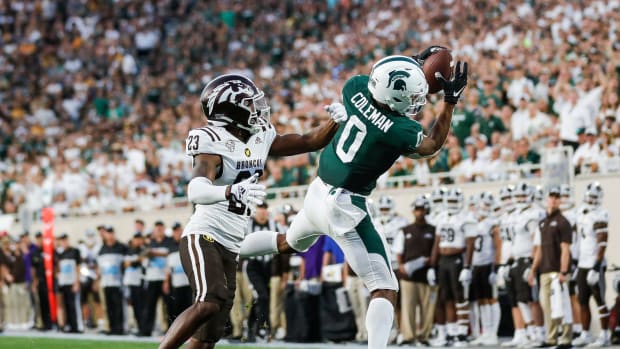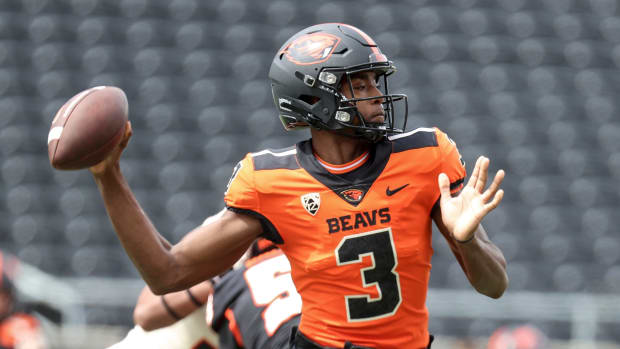Exclusive: Ohio State AD Gene Smith on New NCAA Rules
The NCAA forever changed the world of college athletics with a seismic memo in April, recommending players be allowed to be paid for their name, imagine and likenesses. It was a process that was a long time in the making but, like a train in a dark tunnel, you knew it was bearing down on you.
"The Board of Governors supported rule changes to allow student-athletes to receive compensation for third-party endorsements both related to and separate from athletics,” the memo stated. “It also supports compensation for other student-athlete opportunities, such as social media, businesses they have started, and personal appearances within the guiding principles..."
With those words, student-athletes will be eligible to get paid pending official adoption by the NCAA, and Pandora’s Box has officially been opened.
There are strong opinions on both sides, but the voice that may speak the loudest in support of the decision comes from arguably the best AD in all of college sports: Gene Smith from Ohio State.
In an exclusive interview with Spartan Nation, Smith said of the new name, image and likeness ruling, "Just like this latest NIL discussion. Everyone is talking about the Zion Williamson-type players. I have tried to convey to my colleagues that this isn't really about the star football or basketball player."
While some see Smith's support for the new resolution as disingenuous because of the size of Ohio State, many of the NCAA member schools don't have the star football and basketball players that Smith's Buckeyes do.
But Smith thinks they are missing the critical point.
"It is about the athletes on a limited scholarship in the sports that are not as well known,” Smith said. “They will be the greatest benefactors. When you think about people being at the heart and soul of everything you do, you can't always think about those at the top, but your decision will impact many other people who get overlooked."
Smith is emphatic that the new rule, for example, helps the baseball player or the golfer who only receives a partial scholarship. How about the track star headed to the Olympics? For Smith, those players are why he supports the rule.
Dr. Clarence Underwood, the former AD at Michigan State, told Spartan Nation he agreed in part with Smith.
“The players who are not on full scholarship, the new rule with benefit them greatly, and that plays a part," Underwood said. "I still think there are ways to get around that and get it corrected with the NCAA and make all scholarships full. The path should be academic first and then your sport. Adding the commercial element will bring that to the front, then your sport, and finally, academics. We must not forget that college is about education."
Often time bureaucracies make decisions that don't address the unintended consequences. It’s something Underwood knows firsthand from his own background.
"When I first read the rule and thought it out, I was very much against it,” Underwood said. “My concern is that as an academic advisor for 12 years was graduation. I wanted them to leave with something honorable, tangible, and quality, and that is a degree.
"I found a lot of athletes who lived off campus would spend their housing money within two weeks. Broke, can't get a ride, no bus fare and miss class. They leave without a degree."
Smith argues that the players receiving partial scholarships can now generate revenue from their name, image and likeness.
That is true, but what if a player with a partial scholarship in a sport like lacrosse doesn't have the revenue potential like golf, track in the Olympics, or baseball?
Due to Title IX, more female athletes in nonrevenue sports are on full scholarship compared to male athletes in nonrevenue sports, where partial scholarships rest primarily. This ruling doesn't allow players to sell sponsorships on their uniforms like NASCAR.
The definitive point of the conversation is that, once again, there are more questions but still few answers.
While there is no doubt that Underwood's passion is admirable, the times and the laws are changing, and the NCAA has to change. Even if it is for the student-athletes' detriment, as Underwood proposes, doing nothing could have destroyed the NCAA—something we know they weren't going to allow to happen.
